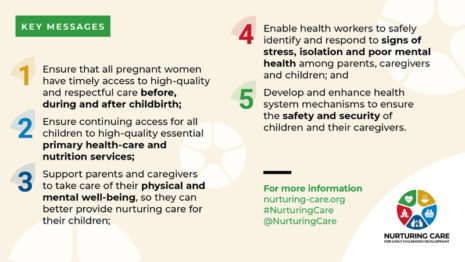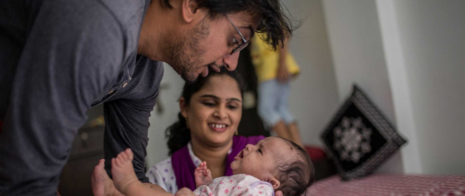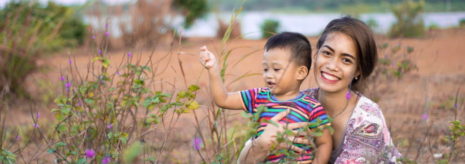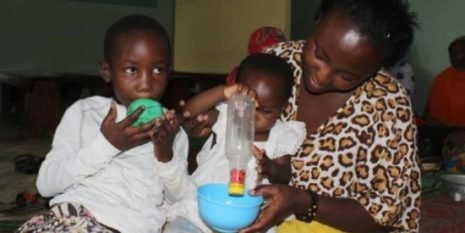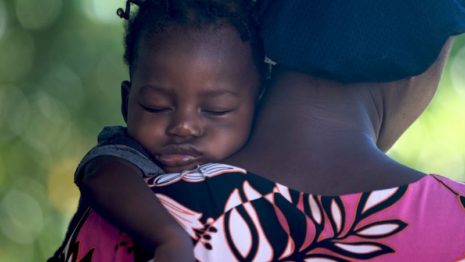Nurturing care for ECD materials
Working with national governments in Kenya, Mozambique and South Africa, PATH has developed or updated counseling aids, reporting tools, and information, education, and communication materials to facilitate attention to all aspects of nurturing care in maternal and child health services at facility- and community-levels. Read More →




